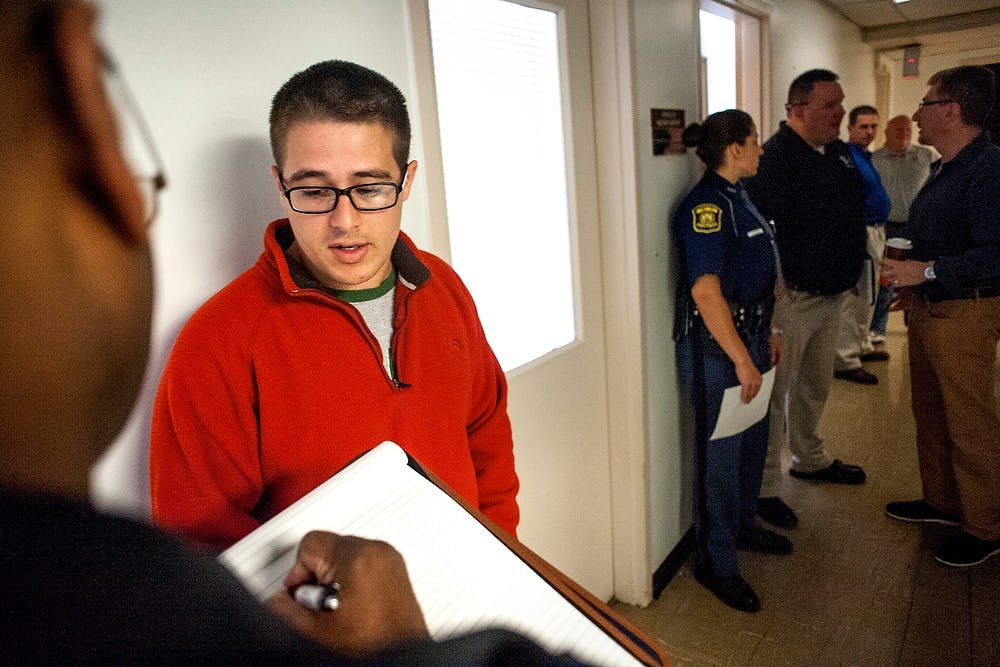The Michigan State Police, or MSP, Training Division and the MSU School of Criminal Justice teamed up to host the annual homicide scene preservation and investigation training program for law enforcement officers from all around the state. This hands-on experience gave both officers and students the chance to delve into what it means to work behind the scene of a homicide.
“We do a practical, hands-on mock crime scene in which the students have to process the scene, do interviews, obtain arrest warrants and search warrants,” MSP Lt. Chuck Christensen said. “What we have is a cross section of detectives and investigators from around the state that can come in and attend the five-day (homicide) school.”
A number of different crime scenes were set up inside the Washington Street Armory, 2500 S. Washington Ave., in Lansing, Wednesday morning. Students and officers, such as Troy Johnson, a trooper investigator from the Lansing state police post, were able to handle the scenario as he would a real crime scene.
Johnson normally works under the detective sergeant to help investigate some of the higher priority cases, such as homicides, criminal sexual conducts and financial crimes, and found the homicide school to be essential for the development of his career.
“There’s a lot of useful information that we’ve been taught this week,” Johnson said. “Just how to use entomology — that’s something I had little knowledge of before this class, but certainly something I’ll recall in the event that I have a case like this to investigate.”
Johnson said he also found this homicide training to be pushing them to reach out with other universities and media to help solve some of the crimes, something that was touched on in his past training.
What the officers were being taught Wednesday is more advanced training, Christensen said. He emphasized the importance of securing the scene right away and how that can often be very difficult to do.
“A homicide is very often emotionally charged,” Christensen said. “You might have family members that are trying to get into the scene that are crying … (but) if the scene isn’t locked down initially, you’re going to lose evidence such as footwear (and) trace evidence.”
MSU human biology and criminal justice junior Alexa George participated in the mock crime scene to help people in the class get information to solve the case.
“I’m not supposed to know everything about the case, but I say what I know and see if I can help them solve the case,” George said. “I’ve never been to a real crime scene, but they’re doing everything right, they’re asking all the questions, they’re asking pretty much everything I know.”
Support student media!
Please consider donating to The State News and help fund the future of journalism.
Discussion
Share and discuss “Mock crime scene gives hands-on experience” on social media.







